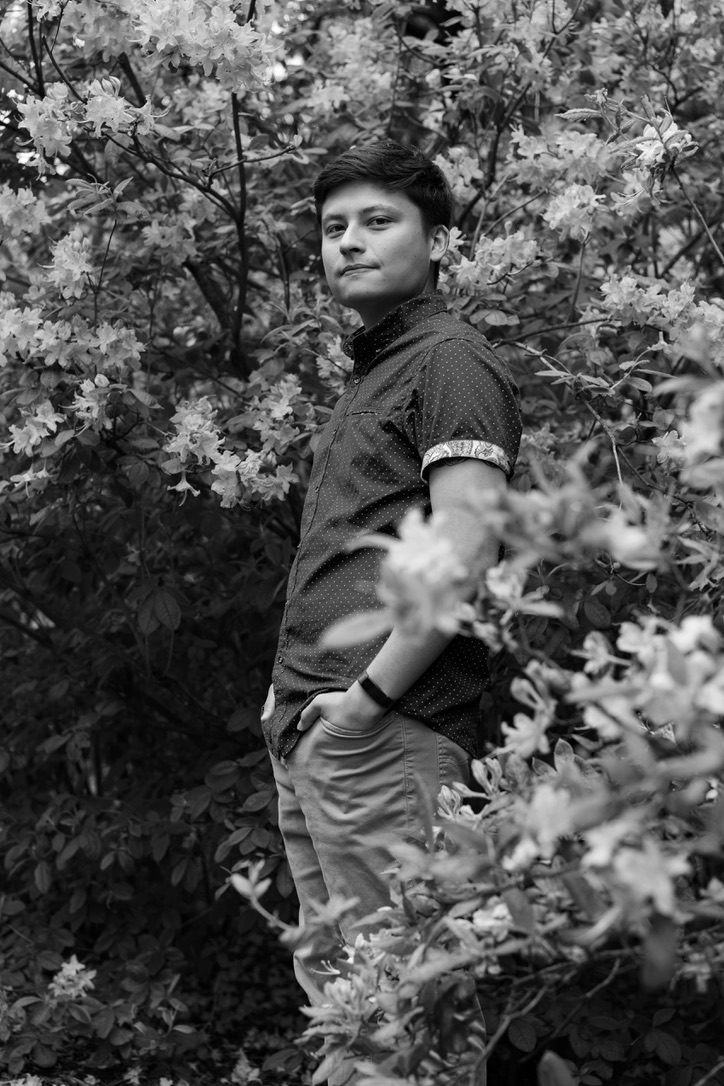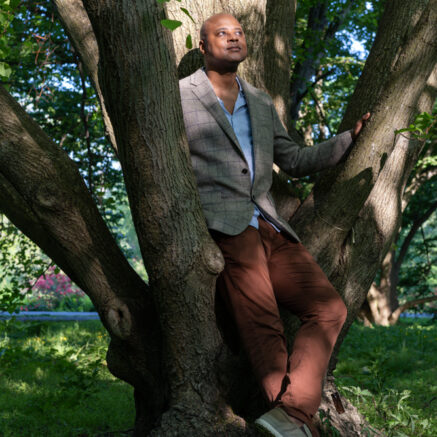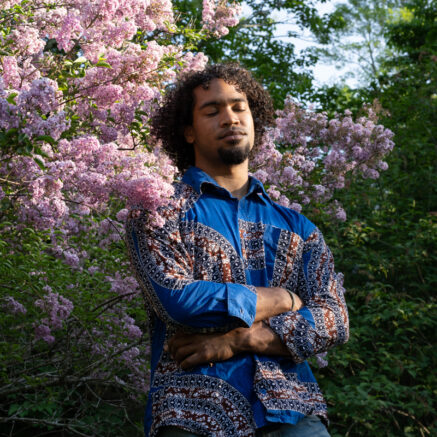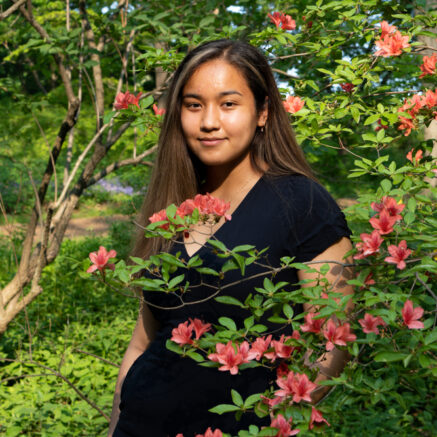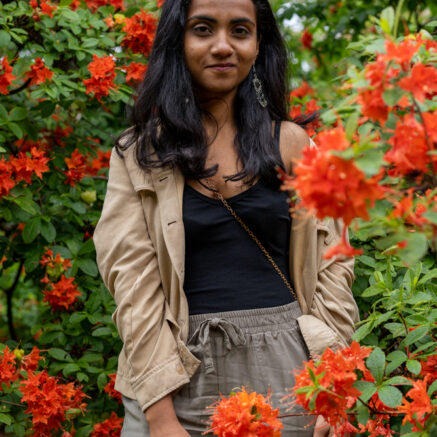Daniel Chonde, Scientist, Beaver
Daniel B Chonde, MD PhD is a radiology resident, diversity advocate, and researcher at the Massachusetts General Hospital interested in understanding how art can be used to create more empathetic, culturally aware, and equitable healthcare spaces that empower both patients and providers. Trained as a physicist with a focus in medical imaging, he has always sought work with a clear human impact. Following the publicized death of a growing number of Black individuals, he became interested in using his research experience to address issues of health equity and workforce diversity in healthcare. Today his work draws from experiential design, neuroaesthetics, and narrative ethics.
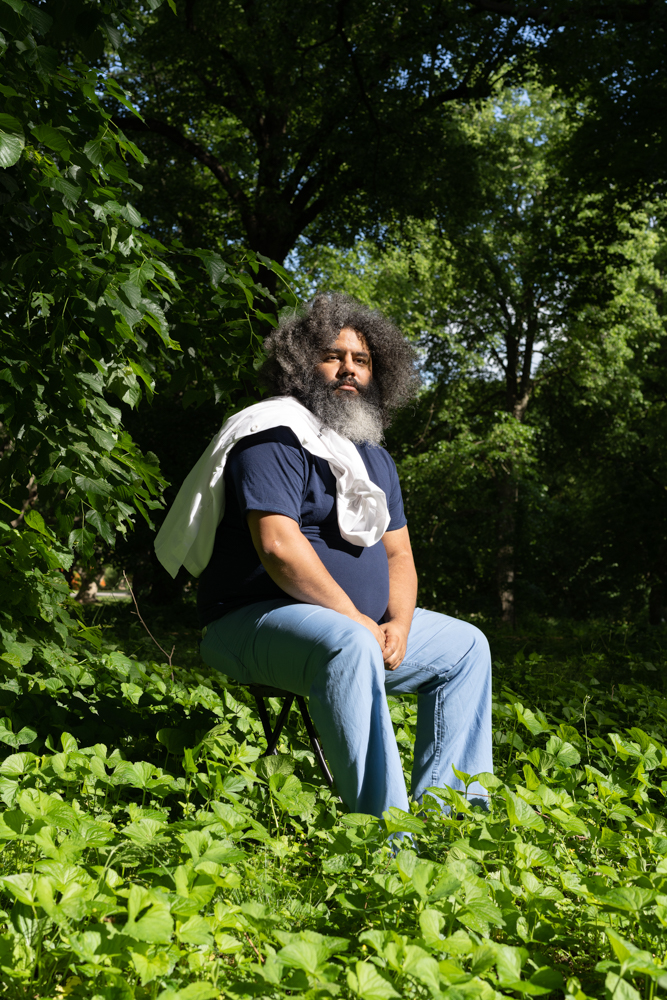
Vanessa Leroy, Portrait of Daniel Chonde, 2021. Digital Photograph. ©Poetry of Science. All rights reserved.
Daniel Chonde, Scientist, Beaver
Science explains why the sky is blue,
why the leaves and the grass and the trees
are green, how we got to the moon,
how to help the sick recover and bloom.
It helps everyone do what it is they do,
helps the cell phone ring. If a hospital
is a living thing, it would be a big lake,
with fish and frogs, and animals making
their way around. What’s the creature I’d be?
Why a beaver, of course—who helps build
the environment.
- Danielle Legros Georges
This children’s poem was written after two interviews with Daniel Chonde, MD, PhD.
The United States is currently facing a severe lack of Black men in medicine — more specifically U.S. born Black men in medicine. A recent New England Journal of Medicine article examined 41 years of data on medical school applicant and matriculant demographics. While many underrepresented groups have seen an increase in representation in medical school, the number of Black men applying to medical school has remained relatively stagnant since 1978, with the number of U.S. born Black men making a significantly smaller proportion of that population. While this was previously anecdotal, it was proved to be accurate when the AAMC expanded their race questions to allow for sub-categories of Black. The dearth of Black men in medicine has raised such concerns in the medical community that in 2015 the Association of American Medical Colleges released their landmark report, Altering the Course: Black Males in Medicine".
The distinction between Black and African American is subtle but important. Black refers to anyone with ancestry and features from sub-Saharan Africa (all countries south of Algeria, Egypt, Libya, Morocco, Tunisia, etc which are commonly grouped with the Middle East). African-American specifically refers to individuals who can trace their ancestry to enslaved Africans in the US or more loosely as those who are at least second generation American. The importance being that the trajectory of African-American families have been heavily influenced by systemically racist policies, including overt acts aimed at keeping African-Americans impoverished, while Blacks who immigrated to the US later were spared from such intergenerational policies.
Now the role to which Black versus African-American ancestry should play in medical school admissions is highly controversial (here is the counterpoint response); however, it does remind us of the immense impact that systemic racism has played in shaping the multiple generations of African-Americans.
